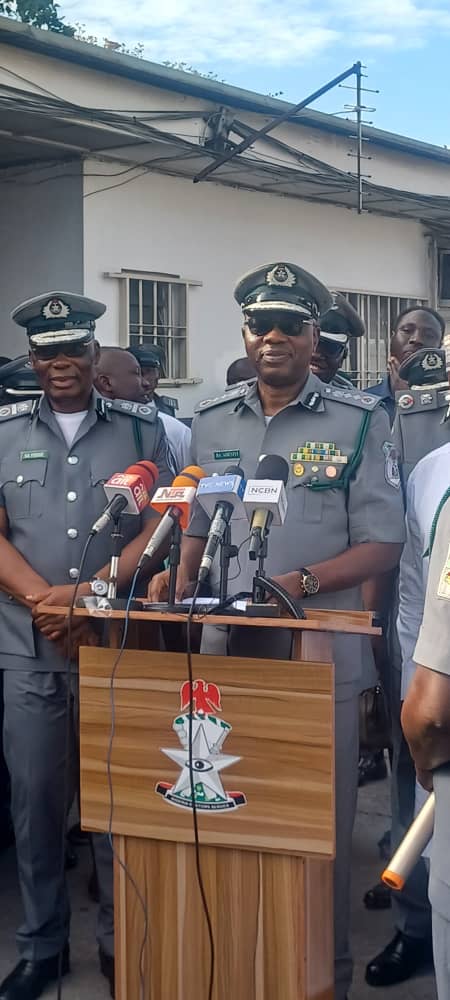In a significant step toward modernising its operations, the Nigeria Customs Service (NCS) has launched the “B’Odogwu Software” at Ports and Terminal Multipurpose Limited (PTML) in Lagos.
The initiative, aimed at enhancing efficiency and streamlining trade facilitation, was announced on Wednesday by Comptroller General of Customs Adewale Adeniyi during the software’s inauguration.
Speaking at the event, Adeniyi emphasised the importance of the new Unified Customs Management System in advancing the service’s goals.
“This marks a major milestone in our journey to modernise Nigeria’s customs operations and align with global best practices,” he said.
Adeniyi described B’Odogwu as a core part of the NCS Modernisation Project, designed to address long-standing challenges and improve operational efficiency.
The Customs boss attributed the successful realisation of the project to Finance Minister Wale Edun, who played a pivotal role in implementing initiatives that supported the rollout.
Adeniyi noted that the legal framework, established in Sections 28 and 29 of the Nigeria Customs Act, empowers the NCS to develop and deploy electronic systems that ensure transparency and engage stakeholders.
“The launch of B’Odogwu aligns with the strategic objectives of President Bola Ahmed Tinubu’s administration, aimed at enhancing the efficiency of NCS for the benefit of Nigerians,” Adeniyi added.
He acknowledged the challenges faced with previous software systems, such as ASYCUDA and NICIS II, which often caused network downtime and led to costly delays for customers.
In contrast, he said B’Odogwu is designed to create a paperless customs environment, ensuring smooth trade while maintaining robust security protocols.
The software incorporates advanced technologies, including Artificial Intelligence (AI), Machine Learning (ML), Virtual Reality (VR), and Mixed Reality (MR), to modernise customs processes.
“B’Odogwu will strengthen our ability to manage borders effectively, in line with both local needs and global standards,” Adeniyi said.
Highlighting the software’s advantages, he noted that B’Odogwu would streamline end-to-end business processes, provide customised integration for stakeholders, and enhance decision-making.
He said PTML was selected as the pilot location due to its strategic position as a transshipment hub between Europe and Africa, as well as its operational excellence and infrastructure that supports efficient customs operations.
Adeniyi reassured stakeholders that network downtime is now a thing of the past, with upgraded infrastructure and successful tests conducted for integration with key trade partners such as Authorised Dealer Banks, Shipping Lines, and Bonded Warehouses.
He praised the positive feedback from stakeholders following sensitisation efforts and assured that B’Odogwu would address concerns raised by traders and agents.
While acknowledging potential technical challenges during the initial rollout, Adeniyi said a dedicated team of experts would be on standby to resolve any issues.
He also announced that the software would eventually replace the Nigeria Integrated Customs Information System (NICIS II) as the NCS’s legacy system.
The Comptroller General expressed gratitude to terminal operators, Customs officers, and licensed agents for their support during the transition.
He called on stakeholders to embrace the new system with optimism and provide feedback to help further improve its functionality.
Adeniyi hailed B’Odogwu as a homegrown solution that not only meets international standards but also addresses Nigeria’s unique customs challenges, offering it as a valuable contribution to the global customs community.
